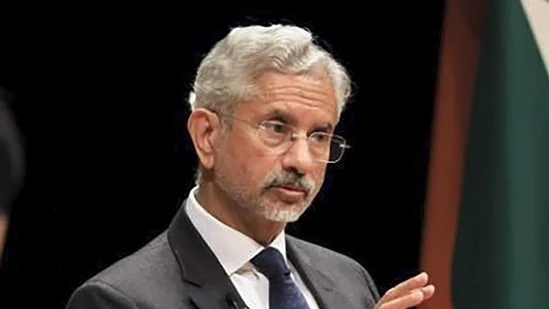The Indian Dream of a Permanent Seat at the UN
- MGMMTeam

- Apr 16, 2024
- 3 min read
Introduction
India's ambition to secure permanent membership in the United Nations Security Council (UNSC) is not just a diplomatic aspiration; it signifies the nation's evolving role and influence in global affairs. Recently, India's External Affairs Minister, S Jaishankar, expressed confidence in India's eventual attainment of this goal.
Historical Context and Current Scenario
The UNSC, established nearly eight decades ago, reflects the power dynamics of a bygone era, with its composition still dominated by five permanent members. However, the world has transformed significantly since then, and India has emerged as a prominent player in international relations. Despite being a founding member of the UN and actively participating in its endeavors, India's representation in the UNSC remains confined to periodic non-permanent membership.
S Jaishankar’s Statements
Speaking at a gathering of intellectuals in Rajkot city, Gujarat, Jaishankar addressed inquiries regarding India's prospects of attaining permanent membership in the United Nations Security Council (UNSC). He recalled the establishment of the UN approximately 80 years ago, noting that five nations - China, France, the Russian Federation, the United Kingdom, and the United States - secured permanent membership in its Security Council at that time.
Jaishankar highlighted the significant increase in the number of independent countries globally since then, rising from around 50 to approximately 193. He emphasized the persistent efforts over the years to secure India's permanent membership. Notably, he mentioned India's collaboration with Japan, Germany, and Egypt in presenting a proposal to the UN, expressing optimism about its potential to advance the matter. In response to a query concerning baby girl Ariha Shah, who was separated from her Indian parents and placed in foster care by German authorities, Jaishankar assured that he is personally overseeing the situation. During his address, he underscored India's democratic achievements over the past decade, asserting the country's capacity for effective governance.
Furthermore, Jaishankar emphasized that international bodies such as the UN recognize India's advancements in various social sectors, including access to water, electricity, infrastructure, healthcare, and education.

Challenges and Opposition
Nevertheless, India's bid for permanent membership faces resistance from a coalition of nations, including both regional rivals and countries wary of upsetting the current power equilibrium. Nations like Pakistan, Italy, and Spain express apprehensions, fearing potential disruptions in the UNSC's dynamics. Overcoming this opposition necessitates nuanced diplomacy and consensus-building on a global scale.
Justifications for India's Candidacy
India's claim to a permanent seat on the UNSC is bolstered by various factors;
India is one of the original members of the United Nations.
India actively participates in all UN initiatives and various UN summits.
India has been elected seven times for a two-year term as a non-permanent member.
Among the P5 nations, India has deployed the highest number of peacekeepers.
India stands as the foremost liberal democracy globally.
India ranks fifth in the global economy.
Since May 1998, India has possessed nuclear weaponry.
Throughout its history, India has consistently dedicated itself to disarmament and nonviolent principles.
Potential Benefits
Acquiring a permanent seat on the UNSC would bestow numerous advantages upon India like;
India stands to gain prestige in matters of geo-economics.
Securing a permanent seat would empower India to sway the resolutions adopted by the United Nations Security Council.
India's standing within the United Nations would transition from being a responsible stakeholder to becoming a global rule-maker.
Possessing the power of veto would enable India to safeguard its interests within the United Nations Security Council, allowing it to veto resolutions that may undermine India's interests.
India's accession to a permanent seat would signify its emergence as a global power and its pivotal role in fostering international peace and security.
Conclusion
India's pursuit of permanent membership in the UNSC signifies a significant juncture in its diplomatic journey. While hurdles remain, India's unwavering determination, coupled with shifting global sentiments, augur well for its prospects. As India continues to assert its credentials as a responsible global actor, its accession to a permanent seat on the UNSC appears increasingly inevitable. Such a development would not only affirm India's emergence as a global power but also enhance the legitimacy and efficacy of the UNSC in addressing contemporary challenges.
In External Affairs Minister Jaishankar's words, "Nothing big is ever achieved without hard work." India's path to permanent UNSC membership underscores its steadfast commitment to global peace, security, and equitable representation. With the world undergoing rapid geopolitical transformations, India's presence as a permanent member would not only reflect its own ascendancy but also contribute to a more inclusive and effective global governance framework. As such, India's journey towards permanent UNSC membership is not merely a pursuit of power but a testament to its vision for a more just and equitable world order.




Comments